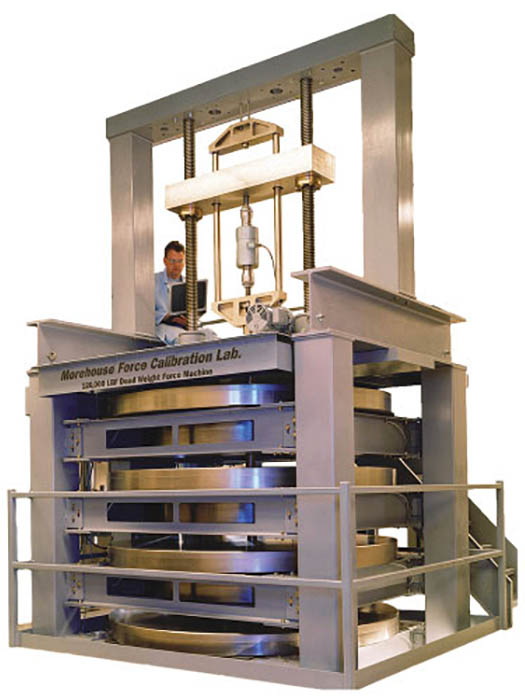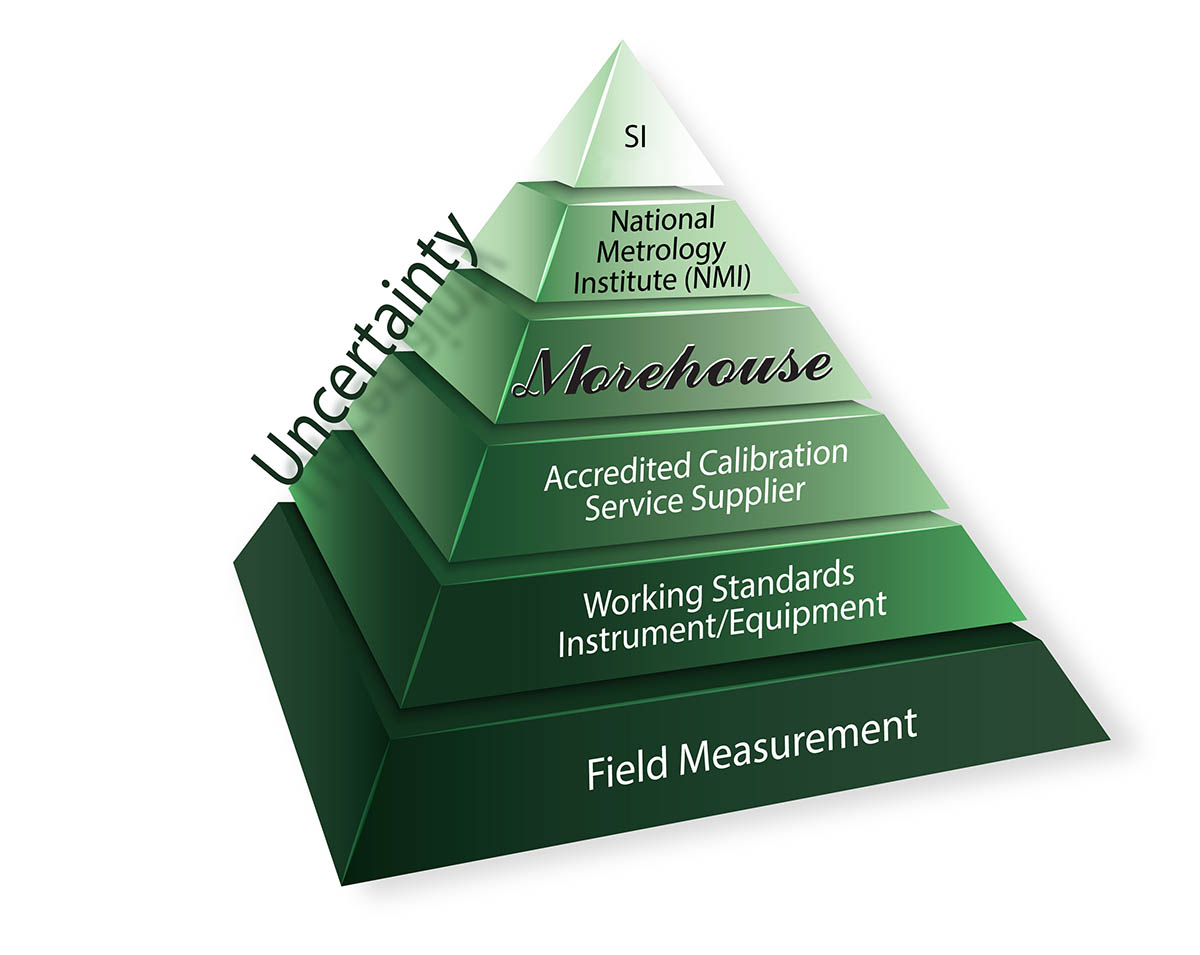Companies rely on, and trust, Morehouse Instrument Company for force calibration services of their load cells, proving rings, force gauges, dynamometers, crane scales, aircraft scales, and other force measuring instruments. With a standard lead time of 7-10 business days, Morehouse provides all of the 'more' - it’s in our name and nature.
We proudly hold A2LA (Certificate: 1398.01) and NVLAP (Lab code: 600259) accreditations, signifying that our calibration procedures meet the most rigorous international standards and ensuring that your measurements are accurate and traceable to the SI, through the National Institute of Standards and Technology (NIST), the gold standard for calibration.
Choose Morehouse Instrument Company, the accredited force and torque measurement solutions leader.
Measurement risk is the probability that a bad decision will result from a measurement whose consequences can include massive recalls, product failures, significant financial loss, and even loss of life. Accurate measurement data can reduce this risk so you should expect more from your measurements.
Calibration labs are not created equal with significant differences of CMC uncertainty parameters that can range from 0.1 % of applied force to 0.002 % of applied force, like Morehouse; using a force calibration laboratory whose capabilities cannot meet your requirements is like using a ruler to calibrate a gauge block.
Learn more about our Accredited Force Calibration Services and how we can reduce your measurement uncertainty and cut your measurement risk.

Confidence in your force measurements begins with the force calibration service. Morehouse works with every customer to ensure their instruments are calibrated in the same manner they are being used, which allows our customers to replicate the calibration results in their tests. Not doing so can cause significant errors, meaning 10-50 times that of what is expected.
Our ISO/IEC 17025 accredited measurements are more accurate than any other commercial laboratory, which translates into lower uncertainties for you. Low uncertainties result in broader acceptance limits (using method 5 of ANSI/NCSLI Z540.3 Handbook and allow us to make more statements of conformity “Pass” per the requirements of section 7.8.6.1 of ISO/IEC 17025:2017) and increased confidence in your results.

Many standards require calibration, or verification, of measuring instruments with proof of traceability and uncertainty of their measurements. The uncertainty pyramid (left) shows uncertainties increasing with each calibration step or level. From the International Vocabulary of Metrology (VIM 2.41) published by the international authority BIPM, "Metrological Traceability - property of a measurement result whereby the result can be related to a reference through a documented unbroken chain of calibrations, each contributing to the measurement uncertainty.”
This means that without careful consideration of calibration uncertainty, a proper chain of traceability cannot be established and without measurement traceability, your measurements are invalid. Morehouse is a primary standards laboratory, directly traceable to SI through NIST, helping you minimize your force measurement risk and boost your confidence in your results with truly traceable calibrations.
